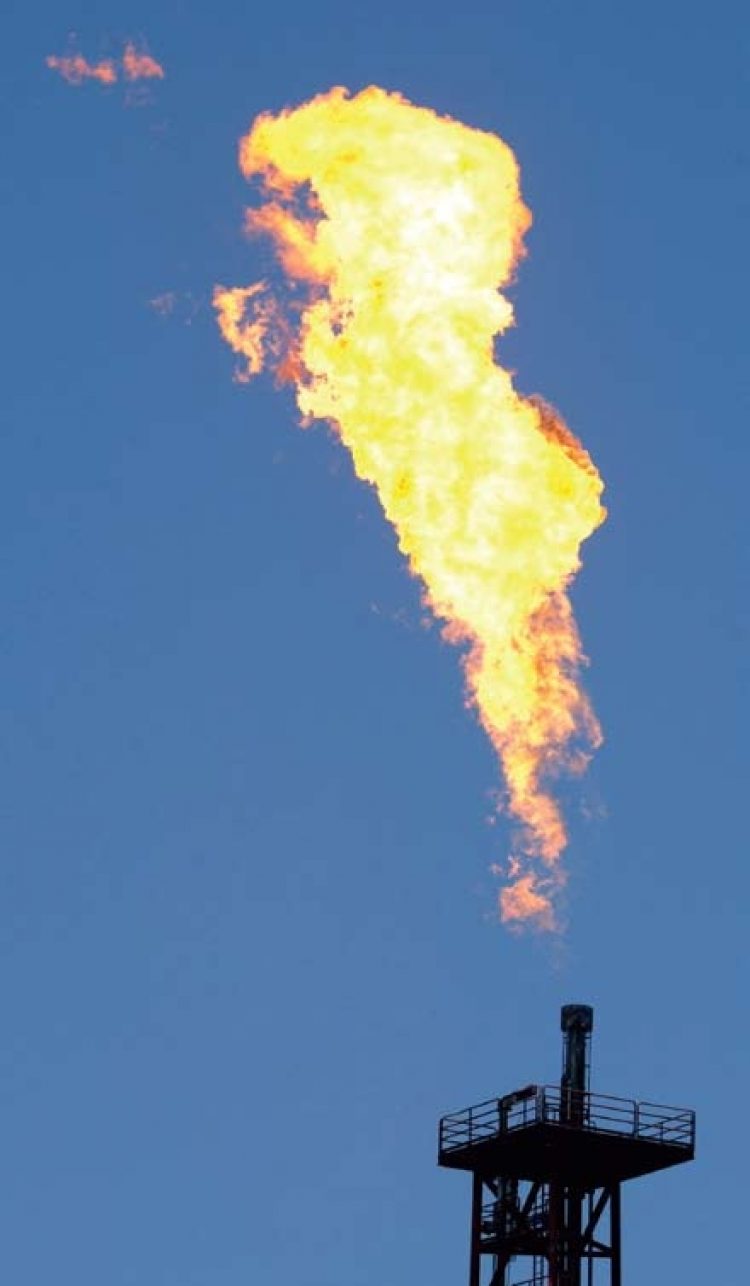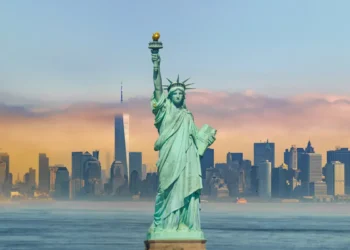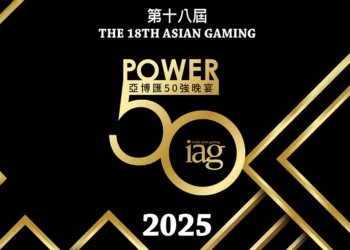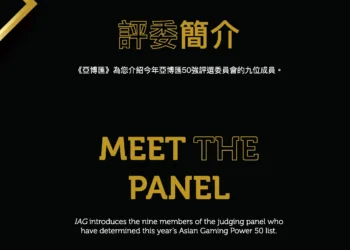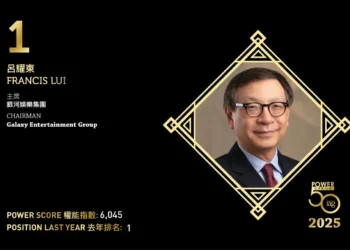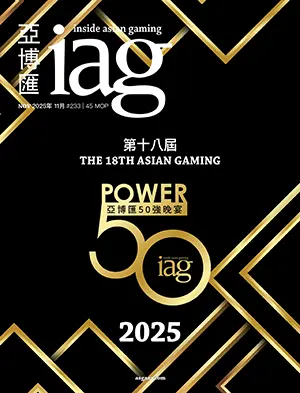But Las Vegas Sands Corp is hardly helped by its current legal issues
When litigation and/or criminal investigations become bigger news than a company’s core business activity, a significant amount of pressure is placed on the people at the top.
Tony Hayward resigned as chief executive of the oil company BP in the wake of the Gulf of Mexico crude spill. Between the time of the accident (claiming 11 lives and blighting hundreds of coastal communities on 20th April last year) and 14th June 2010, the company’s share price almost halved, wiping £50 billion (US$81 billion) off its market capitalisation.
In Japan, Masataka Shimizu, the president of Tokyo Electric Power Co (Tepco)—the company that brought us the Fukushima nuclear catastrophe—was still clinging to his job at the time Inside Asian Gaming went to press. But between the 9.0 magnitude earthquake and accompanying tsunami—damaging the coolant supply to the nuclear reactors—on 11th March and the end of that month, Tepco’s share price fell by 80%. That was its lowest level for 47 years and shaved US$29 billion off the company’s market capitalisation. Few outside that country are expecting Mr Shimizu to make it to his company retirement presentation and proverbial gold watch.
The headache facing Sheldon Adelson, Chairman and CEO of Las Vegas Sands Corp, is arguably small stuff compared to the blinding migraines experienced by Messrs Hayward and Shimizu, even if it looks bad from the outside.
Mr Adelson’s issue stems from the sacking of Steve Jacobs as CEO of Sands China—LVS’s Hong Kong-listed Macau unit—in July 2010. The company said Mr Jacobs was fired “for cause”—namely alleged unauthorised deals and violations of corporate policies. Mr Jacobs then filed a lawsuit in Nevada, alleging that Mr Adelson had ordered him to commit illegal acts in Macau and had also failed to grant him stock options that he was owed. LVS strongly denies the allegations. Mr Jacobs’ accusations did, however, catch the attention of the US Securities and Exchange Commission (SEC), the financial regulator for New York-listed LVS. The SEC launched an investigation into the Nevada suit claims, looking at possible violations of the Foreign Corrupt Practices Act, a US law prohibiting the bribery of foreign officials by a US company. The US Justice Department and the Nevada Gaming Control Board also began examining the matter and in the third week of March the Federal Bureau of Investigation (FBI) said it too was investigating. The Hong Kong Stock Exchange’s Securities and Futures Commission (SFC) rounded off a maddening March for LVS by announcing on the final day of the month it was launching its own inquiry into Sands China.
According to data in the US business newspaper Investor’s Business Daily, from the time of 28th February—the day before LVS’s announcement to the market about the SEC investigation—and the close of business on 18th March, the company’s market capitalisation shrank by 22%. That’s US$7.48 billion in cash terms. The closing stock price on 28th February was US$46.64—market cap of just under US$33.9 billion. The closing price for LVS stock on 18th March was US$36.34—a market cap of just under US$26.4 billion.
But by the time IAG went to press in early April, IBD was reporting that the company’s share price was back up to US$44.84—a recovery of 23.4% on the mid-March low. That seems to support Mr Adelson’s contention that his company’s involvement in Asian casino markets means he is participating in a tide that “carries all boats”—regardless of the fact some boats may experience choppier seas than others.
On 31st March, shares in Sands China, the company’s Hong Kong-listed unit, experienced separately a 6% fall when the company announced Hong Kong’s SFC inquiry. But on 1st April—when Macau’s gaming regulator announced gross gaming revenue for March grew 48% year on year to 20.1 billion patacas (US$2.51 billion)—Sands China’s stock put on 6.1%.
Barron’s magazine recently described Mr Adelson’s great Las Vegas rival Steve Wynn as “an investor’s friend” when adding him to its list of the World’s Great CEOs. Long/short hedge funds could equally describe Mr Adelson as an investor’s friend. His willingness to spend a lot of money on infrastructure (up to US$6.8 billion) to capture Macau’s higher-margin mass market gaming customers rather than concentrating on the VIPs (like many of his Macau rivals) arguably offers investors a ‘go-long’ hedge against the uncertainties of the Macau high roller trade and its accompanying junkets. And just as importantly, any investor wishing to short LVS shares in relation to the current investigations by regulators and law enforcement bodies can do so with a clear conscience, knowing that even if the LVS stock takes a hit once the results of the investigations are revealed, it will probably bounce back anyway to the benefit of the entire investment community, carried up on the general tide of optimism surrounding the Macau casino market.
But there are valuation opportunities and then there are risky behaviours—the sort pinned on BP in its management of oil rig safety prior to the Gulf of Mexico disaster. When BP had US$81 billion wiped off its share price, the market was reflecting its dissatisfaction with BP management’s performance, its alarm at the medium term implications for BP’s business prospects in the US market and further afield, and its concern at the cost of the clean-up operation and what that could do to shareholder profits. As of this month, the total compensation and clean-up bill faced by BP was estimated at US$30 billion. If BP and the oil rig owner Transocean had done as recommended by an outside contractor and replaced a faulty blowout preventer on the Deepwater Horizon platform, it could have cost them less than US$2 million, according to one piece of evidence put to a US Congressional inquiry.
The question some LVS investors are asking is how wise it was for LVS to fight Steve Jacobs’ request for a reported US$7 million compensation after he was sacked as CEO of Sands China in July last year. By the company’s own assessment, the dispute with Mr Jacobs has led directly to regulatory and criminal investigations. The company said in its annual report: “It is the Company’s belief that the [SEC] subpoena may have emanated from allegations contained in the lawsuit filed by Steven C. Jacobs.”
Those investigations at the very least risk negatively affecting local goodwill toward LVS—in a Macau casino market worth US$27.2 billion in gross revenue in 2010.
Mr Adelson claims Mr Jacobs’ legal action is “threatening, blackmail and extortion” and says corruption allegations made by Mr Jacobs against LVS and Sands China are “lies”. Mr Jacobs has not responded to Mr Adelson’s statement, but clearly feels he has been unfairly treated by LVS. When positions become hardened in this way it’s hard to reach a compromise without recourse to law—whether the civil or criminal kind. But even if some LVS shareholders are alarmed enough by the situation to question Mr Adelson’s position, it appears unassailable, not least because he and his family own a majority of the LVS stock.
The end game for a casino operator facing any serious regulatory investigation into its business practices is that it can lose its licence. Law 16/2001—the Macau legislation establishing the framework for a post-monopoly market—gives specific grounds on which a casino operator’s concession (or sub-concession in the case of LVS) can be withdrawn.
Article 47 of Law 16/2001 headed ‘Withdrawal due to failure in fulfilling obligation’ states: “1) If the concessionaire failed to fulfil the obligations as required by related laws or contracts, the government can withdraw the concession. 2) Especially any of the following will lead to withdrawal. A) the concessionaire gave up running or stopped running the business without appropriate reasons. B) Violations of this law or other contracts related to its concession. Partial or entire transfer of its operation in interim terms or permanent basis.” Article 48 of Law 16/2001 headed ‘Withdrawal due to public interest’ adds: “1) Whether the concessionaire has fulfilled any of its legal obligations or not, the government has the right to withdraw the concession based on the ground of public interest. 2) In the event of withdrawal on the grounds of public interest, the concession has the right to seek compensation, of which the amount should be based on the remaining time before the expiration of the concession and the investment the concessionaire has already made.”
No one is seriously suggesting Sands China and LVS face the withdrawal of its Macau operating licence because of these events. But the fact LVS—in common with a number of other Macau casino operators—has exposure to several casino markets across the world, makes investors fret that regulatory complications in one market could have implications in others. In the case of LVS, that’s Nevada, Pennsylvania and Singapore. MGM MIRAGE (now MGM Resorts International) has already found out how regulatory issues in one market (New Jersey) can have an impact in another (Macau and the company’s joint venture with Pansy Ho at MGM Macau).
And multiple US federal investigations into criminal allegations are hardly something to advertise in lights on the side of your Asian casino properties. In the first quarter of this year, Resorts World Sentosa, Genting’s casino resort in Singapore, reportedly established a significant lead in terms of volume of VIP roll over LVS’s Singapore resort, Marina Bay Sands— US$20 billion per quarter for RWS versus US$10 billion for MBS. In previous quarters, the properties had been roughly neck and neck in the high roller segment. The sudden lead of RWS could be a function of more aggressive pricing on VIP rolling chip commissions. A contributory factor could also be that some VIP gamblers would rather not lodge large amounts of money with a casino whose parent company is under close regulatory scrutiny in the US and Hong Kong.
In the situation facing Sands China, investors quite reasonably want some insight not simply into the worst case scenario—loss of the Macau subconcession—but into the most likely one. Not even the US federal bodies involved in the inquiries may be in a position to answer that question at this stage.
It’s unlikely, though, that US investigators will be given free rein in Macau to make on the ground inquiries and interview potential witnesses in the way the FBI led the investigation on the ground into the bombing of the US Embassy in Nairobi in 1998. The two inquiries are of course not comparable in terms of the gravity of the allegations. The Nairobi investigation involved major loss of life for US and Kenyan civilians and military. The wider point is that China is a big, powerful country vying with the US for global supremacy. Kenya is a poor, relatively weak country dependent on Western goodwill for aid and economic and political stability. There’s no political benefit accruing to China in allowing US investigators jurisdiction on Chinese soil. So what we’re left with in that case is a necessarily incomplete inquiry conducted at arm’s length, with the power of subpoena only over US citizens.
Arm’s length
A criminal investigation into Sands China by a body such as the FBI would require the gathering of evidence that would need to be tested in court in front of a US jury. That could be difficult if the inquiry is done at arm’s length, as not all the parties that the investigators might wish to speak to will necessarily be US citizens. Evidence gathered by an SEC investigation, however, would not necessarily need to be tested in court. The SEC has the civil power to impose fines on US-listed companies allegedly breaching the terms of the Foreign Corrupt Practices Act, without putting those allegations to the test in front of a jury.
As an illustration of the sort of powers available to the SEC, the US Securities Exchange Act 1934, as amended in October 2010, allows for a securities issuer to be fined a maximum of US$2 million for breaching either of two provisions under Section 30A of the Act, headlined ‘Prohibited Foreign Trade Practices by Issuers’.
Section a) (2)(A) of the Act forbids “any officer, director, employee, or agent of such issuer or any stockholder thereof” from “influencing any act or decision of such foreign official in his official capacity, (ii) inducing such foreign official to do or omit to do any act in violation of the lawful duty of such official, or (iii) securing any improper advantage,” on behalf of the US-listed company.
As an example of what can happen, International Business Machines Corp (IBM), an American multinational technology and consulting firm, recently settled a decade-long Foreign Corrupt Practices Act inquiry with the US federal government for US$10 million. The case related to alleged illegal payments and gifts by then employees of IBM subsidiaries to government officials in South Korea and China between 1998 and 2009. IBM did not formally admit or deny the allegations but agreed in a settlement with the SEC to pay US$5.3 million in ‘disgorgement’ (a legal technical term relating to repayment of improperly acquired income); as well as US$2.7 million in pre-judgment interest and a US$2 million civil penalty.
IBM’s gross revenues in 2010 were US$99.9 billion, according to an SEC filing, so the fine represented only 0.001% of annual revenue. LVS’s gross revenues in 2010 were US$7.3 billion, according to its annual report. Immediately after IBM settled the SEC case, its stock rose 1.1%, closing at US$155.89 on the New York Stock Exchange.
Mr Adelson is 77 years old. His Macau sub-concession technically runs until 26th June 2022, by which time he’ll be 88—only a year younger than Dr Stanley Ho is now. A lot can happen during that time. Under the terms of the agreement with the Macau authorities, however, from 26th December 2017 the government can redeem the subconcession by giving at least one year’s notice and paying compensation. Given the current growth rate of the Macau gaming market, investors will be hoping LVS spends more time in the business headlines and less time in the news headlines between now and the next Year of the Rooster.






